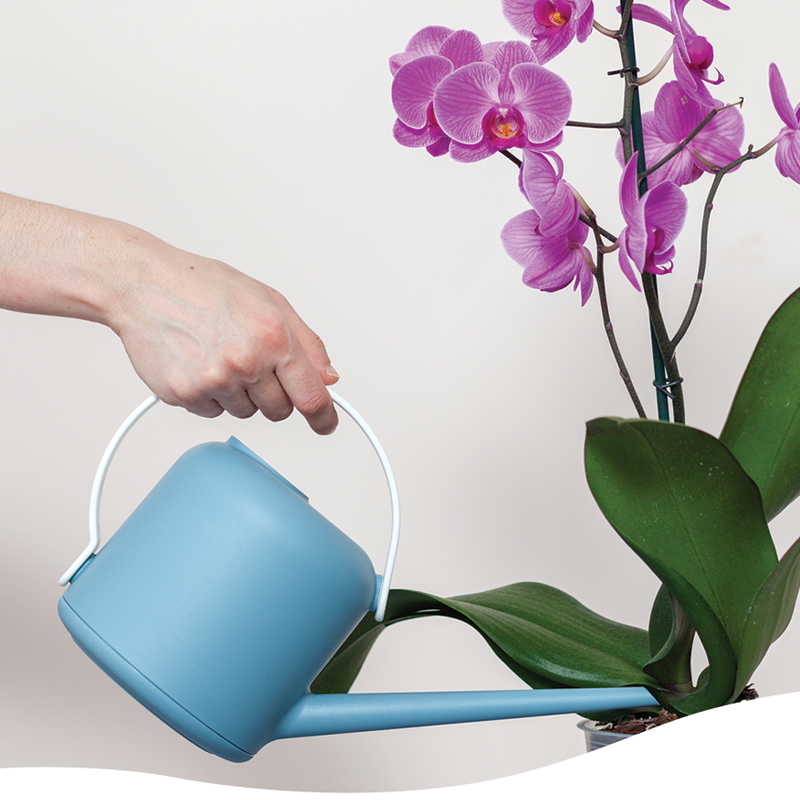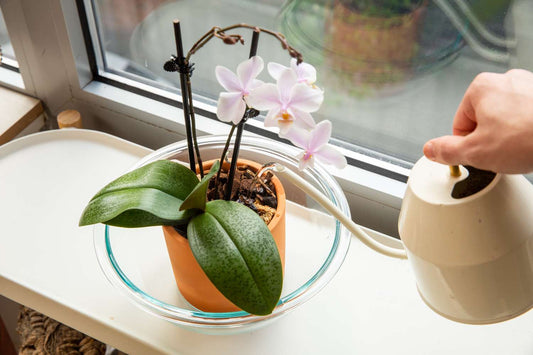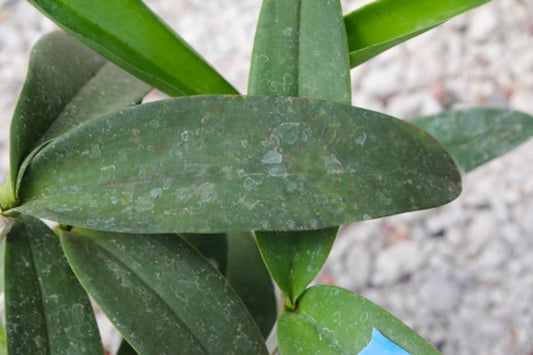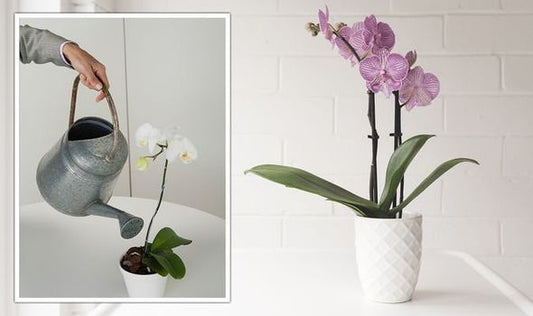
All about watering Orchids
Without question, more orchids are killed by incorrect watering than by any other reason.
Watering of orchids is dependent on a lot of factors like the potting media, pot size, air circulation, humidity, light, and temperature.
Unfortunately, there isn’t a magical formula, but there is one easy trick to judge watering. We call it the finger method.
It is as easy as poking your finger into the potting medium and feeling the moisture in the pot. If the medium is moist postpone your watering.
You can also make out if the pot feels lighter or surface of the potting media looks dry. When orchids are watered, they should be watered well like flooding the pot.
Water should be provided until it runs freely from the drainage holes. Not only does this soak the potting medium but it also flushes salts that naturally accumulate.
Frequently Asked questions
Watering FAQs
How often should I water my plants?
The foremost reason for orchids killed by a newbie is by overwatering. A newly potted orchid has most of its roots damaged and cannot take up much water.
Watering too often will kill it. Humidity around the plant needs to be increased while watering should be kept to a minimum. With established plants, there are several factors.
Plants in clay/terracotta pots, an increase in temperature or plants in a breezy environment need to be watered more often while watering needs to be decreased during the monsoons, in winter where it gets really cold as well as for plants grown in plastic pots.
I've visited a lot of orchid sites and each one has something to contradict what I've previously learned. How do I know if I'm reading the right thing?
You must remember that what works for you might not work for another person, for the simple reason that there are various parameters involved when it comes to growing orchids successfully.
Different orchids come from different regions of the world and have evolved to adjust to that particular climate. There are orchids that come from regions where it rains most of the year and there are others that will not bloom unless there is a remarkable dip in temperature.
Before buying your orchid, read well about their requirements and see if it will be possible for you to provide similar conditions. Talk to our Orchidists at Orchid Tree and gradually you'll learn how to grow your orchids to the best.
I've seen a lot of people growing their plants on benches. Is that really necessary?
If you only have a few plants, a clean, brightly lit balcony or verandah with ample air movement should suffice.
You can also keep your plants hanging after ensuring that they receive at least a few hours of sunlight.
Alternatively, you can keep your plants on a compound wall if you are sure it won't sour relationships with your neighbors or your pets won’t knock them off.
The main idea is to prevent soil-borne infections like Fusarium from entering your plant.
If you have a lot of plants, it would be worthwhile to invest in a bench that is about 90cm above ground level if your greenhouse is open to the elements. If you have a covered greenhouse the bench can be shorter.



